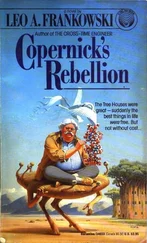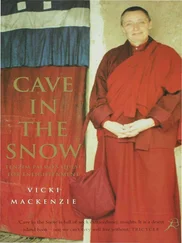Leo Frankowski - CONRAD'S QUEST FOR RUBBER
Здесь есть возможность читать онлайн «Leo Frankowski - CONRAD'S QUEST FOR RUBBER» весь текст электронной книги совершенно бесплатно (целиком полную версию без сокращений). В некоторых случаях можно слушать аудио, скачать через торрент в формате fb2 и присутствует краткое содержание. Жанр: Альтернативная история, на русском языке. Описание произведения, (предисловие) а так же отзывы посетителей доступны на портале библиотеки ЛибКат.
- Название:CONRAD'S QUEST FOR RUBBER
- Автор:
- Жанр:
- Год:неизвестен
- ISBN:нет данных
- Рейтинг книги:4 / 5. Голосов: 1
-
Избранное:Добавить в избранное
- Отзывы:
-
Ваша оценка:
- 80
- 1
- 2
- 3
- 4
- 5
CONRAD'S QUEST FOR RUBBER: краткое содержание, описание и аннотация
Предлагаем к чтению аннотацию, описание, краткое содержание или предисловие (зависит от того, что написал сам автор книги «CONRAD'S QUEST FOR RUBBER»). Если вы не нашли необходимую информацию о книге — напишите в комментариях, мы постараемся отыскать её.
CONRAD'S QUEST FOR RUBBER — читать онлайн бесплатно полную книгу (весь текст) целиком
Ниже представлен текст книги, разбитый по страницам. Система сохранения места последней прочитанной страницы, позволяет с удобством читать онлайн бесплатно книгу «CONRAD'S QUEST FOR RUBBER», без необходимости каждый раз заново искать на чём Вы остановились. Поставьте закладку, и сможете в любой момент перейти на страницу, на которой закончили чтение.
Интервал:
Закладка:
Surveyors were to be out in droves, preparing the way for hundreds of crews of construction workers. A forest of trees would be felled to clear the right-of-way, and were to be just as quickly ripsawed into railroad ties, bridge trusses, and siding platforms. Demolition teams would be blowing out tree stumps wholesale with gunpowder, followed by thousands of men who would be out with picks, shovels, and wheelbarrows, leveling the roadbed.
Every horse and wagon we had taken from the invaders would be in use, as well as every additional bit of equipment we could get our hands on.
While all this intensive work was going on, the Eagles would keep their planes high above us, searching for any hostile move, and the Wolves would be patrolling our borders, sniffing out any enemy action.
We figured to lay three miles of track in the first week, and ten more miles of it on the day after. Once we got rolling, we hoped to be in Brandenburg in ten days, and two months later we would have a perimeter defensive road around the entire province.
Experienced Polish farmers who wanted more land would be recruited to move into every town and large village in Brandenburg, mostly on land once owned by the soldiers who had just tried to invade us. We would equip them with the best seeds, the newest machinery, and the new fertilizers. Once the locals" saw the kind of crops they brought in, they'd be lining up to get with our system.
A construction platoon would get to town, and in two days a schoolhouse would be completed. It would have a windmill that pumped water from a new tube well up to a cistern on the roof, indoor plumbing with hot water, and a septic system. This technology was far ahead of what the people in Brandenburg had ever seen, and it should impress them considerably.
Each of our schools had a general store that sold a wide variety of our products, at better prices than could be found locally, and a catalogue sales arrangement that could get you just about anything at half the price people were used to. Of course, everything was bought and sold with our own uniform currency, and in terms of our uniform measurement system.
Each school had a post office, something nobody in Germany ever saw before.
These commercial operations supported the school system, so much so that we sometimes had to work not to make a profit!
Since this would be army territory, taxes would be completely eliminated, except for those levied by the local government. The Christian Army supported itself by its own efforts, the schools were self-supporting, and the Church took care of itself.
Once we were completely set up, the only people the locals would have to deal with would be someone speaking something close to their own native language, and not in the foreign German tongue.
That was the program, anyway. We were pretty confident it would work. Especially since King Henryk had agreed to handle the political problems for us.
Six companies of infantry had left for Brandenburg the morning after the battle. They were marching with two weeks' worth of dried food on their backs, without their pikes or war carts, but they had been equipped with the new rifles, even if they weren't perfectly trained with them.
The king and I would head out in the morning with the Wolves. We figured to get to Brandenburg before noon.
Chapter Twenty-Four
From the Journal of Josip Sobieski
WRITTEN JANUARY 18, 1250, CONCERNING SEPTEMBER 18, 1249
I ARRIVED at the Explorer's School at the last possible minute before my leave was up, an hour later than the rest of them.
Sir Odon checked me in and said, "Someday, Josip, you are going to be late, and then I will have to be very rude to you."
I said in that event, he could wait to hear my news until after all of the rest of the men in our lance had told me the stories of what had happened to them during their vacations. I called him "Captain Odon," which certainly got his attention, and I swore not to talk until last. All of my friends were dying of curiosity, but I just grinned at them and said that they had to buy all of the beer, as well, in payment for my news.
Since it was almost quitting time, we walked to the local Pink Dragon Inn, where I again insisted on not breaking my vow of silence until I heard their news.
A bare-breasted waitress brought us a round of beers, was paid, and then was ignored. We all felt wonderful, being back with our friends.
Kiejstut eagerly started our informal debriefing. He had been grandly welcomed into his home village, and treated as a returning hero by all of his old friends and relatives. He had been feasted and feted for almost every day of the first two weeks, until he had to beg people to let him get some rest. Everyone had to hear about every event in his long and illustrious army career.
His entire village had been converted to Christianity during the eight years he was away, and they cheered when they heard that he, too, was a convert.
He had given the bride away at his niece's wedding, and had been the godfather at no less than five christenings.
All the girls he had known before were married, with too many children, but there was a whole new crop of fine young maidens, eager to welcome home the conquering hero!
"It was like having two months in Okoitz, but all the girls were even prettier and spoke Lithuanian!"
He ended by saying that when he came back, it was in the company of eleven good Lithuanian boys who had come to the Warrior's School to join the Christian Army.
We all cheered at this new addition to our ranks, for the army was growing again. The massive construction projects of the last eight years had resulted in more than enough apartments, factories, and farms to provide homes and work for all of us. More growth meant, among other things, more promotions.
Taurus had a less happy story to tell, since a few months before he returned to the family farm near Kiev, his uncle had died. Two of his cousins still lived and were struggling to feed themselves and their families. They were working with worn-out tools and poor-quality seeds, and in an area that had still not fully recovered from the Mongol onslaught.
By their standards, Taurus was fabulously wealthy, and in truth, he was able to help them a lot. He bought seeds and fertilizers for them, and then he and Nadja, the Big Person, had helped them get all of their land plowed and planted. He bought them a new, modern steel plow, and a pair of good oxen to pull it with, along with dozens of new farm tools from the store at the new school in the next village.
He bought household goods that they badly needed— dishes, pots, and pans — and gave them to his only relatives. He bought their wives bolts of cloth to make clothing, bedding, and curtains with, and gave everyone, even the children, a new pair of boots. After that, he spent the rest of his vacation time helping them build a new barn, with materials that he paid for.
"But you know, somehow, everything I did, it just wasn't enough. I wish that I had never brought my full dress uniform along with all the gold on it. I told them that I couldn't possibly sell my decorations, but they thought I was holding out on them. They never believed that the Big Person I had ridden in on wasn't my property, that Nadja wasn't even a horse, but a person who could not be bought or sold. One night, one of their wives even suggested that I sell some of my weapons and give the money to them, since I was so rich!
"I tell you that I was glad to leave those people. I've never seen people that greedy, or that ungrateful, before. I don't think I will ever go back there again."
Sir Odon said that everyone at home was glad to see him, but then he saw his relatives every few months, normally, since they lived nearby, in Wroclaw. Mostly, he spent the time helping out in his father's carpentry shop until the invasion happened. Then he had been called up to operate a steamboat on the Odra.
Читать дальшеИнтервал:
Закладка:
Похожие книги на «CONRAD'S QUEST FOR RUBBER»
Представляем Вашему вниманию похожие книги на «CONRAD'S QUEST FOR RUBBER» списком для выбора. Мы отобрали схожую по названию и смыслу литературу в надежде предоставить читателям больше вариантов отыскать новые, интересные, ещё непрочитанные произведения.
Обсуждение, отзывы о книге «CONRAD'S QUEST FOR RUBBER» и просто собственные мнения читателей. Оставьте ваши комментарии, напишите, что Вы думаете о произведении, его смысле или главных героях. Укажите что конкретно понравилось, а что нет, и почему Вы так считаете.











